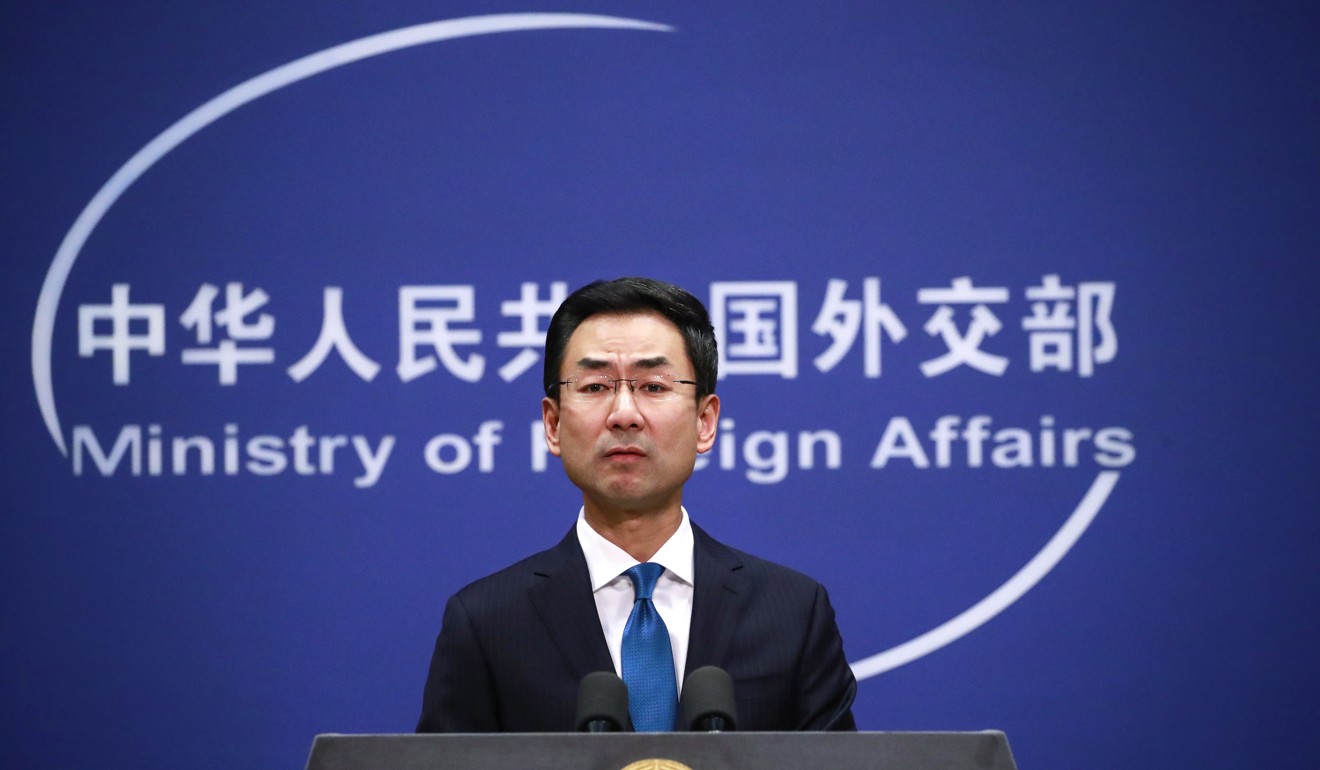
China on Monday said it had lodged a protest with the United States after it expelled two Chinese diplomats who reportedly drove onto a US military base.
Foreign ministry spokesman Geng Shuang said the allegations made by the US against the Chinese diplomats were not in line with the facts.
“We strongly demand that the US immediately correct its mistake, cancel the decision and protect the legitimate rights of Chinese diplomats in accordance with the Vienna Convention on Diplomatic Relations,” Geng said during a press briefing in Beijing.
“I want to remind the US again that international relations should be based on the mutual agreement of providing convenience and protection to diplomatic staff as stipulated in the Vienna convention.”
The latest incident to inflame tensions between Beijing and Washington was first reported on Sunday by The New York Times, which cited multiple people familiar with the matter. The embassy officials were expelled on suspicion of espionage in September, and it was apparently the first time this had happened in more than 30 years.
One of the diplomats was thought to be an undercover intelligence officer, according to the report.

Despite reaching a “phase one” trade deal that was announced on Friday, China and the US are trading accusations over the protests in Hong Kong, Beijing’s mass detention of Muslim minorities in Xinjiang, its activities in the South China Sea and ideological differences.
The report said the diplomats, accompanied by their wives, drove up to a checkpoint at the entrance to a sensitive installation near Norfolk in Virginia.
A guard directed them to go through the gates, turn around and exit because they did not have permission to enter. The Chinese officials proceeded to enter the base, later saying they had not understood the guard’s instructions and were lost, but US officials were sceptical about the explanation, according to the report.
The last time the US expelled Chinese diplomats was in 1987, after assistant military attache Hou Desheng and Zhang Weichu, the Chinese consul in Chicago, were detained on suspicion of espionage.
Following the latest incident, the US in October required Chinese diplomats to notify the State Department before any meetings with local or state officials or with education and research institutions.
US officials said at the time that the move was a reaction to the Chinese government’s rules for American diplomats in China, who already needed to obtain permission from Beijing officials before travelling to official meetings in local provinces or institutions.
China made a tit-for-tat gesture on December 5, demanding US diplomats notify its foreign ministry five days before any meetings with local government officials and educational and research institutes.
The restrictions added heat to already tense relations and created obstacles for think tanks and officials from the two nations to communicate. Earlier this year, Zhu Feng of Nanjing University and Wu Baiyi of the American studies institute at the Chinese Academy of Social Sciences had their multiple-entry visas to the US revoked.
A Chinese diplomatic source said the State Department restriction had made it difficult for officials to meet researchers and think tank members. The source also said Chinese diplomats had received fewer invitations to attend the year-end gatherings of US institutions, which they saw as an important platform for assessing US policy and perceptions on China.
Retired PLA colonel Yue Gang said US-China relations were going through a disruptive phase, with both sides taking steps that were unprecedented in the past four decades, such as exchanging verbal barbs and imposing restrictions on diplomats.
“Many questions remain unanswered or unclarified in this specific spy case involving Chinese diplomats entering the US military base,” he said.
“The move will inevitably stoke diplomatic tensions, which are running high between the two countries. It is a result of the [Donald] Trump administration’s confrontational, zero-sum approach to China, which has seen bilateral ties become increasingly antagonistic,” he said.
Yue said China might not retaliate immediately, but that would not mean it was not an option.
Jia Qingguo, an associate dean of international studies at Peking University, called for Beijing and Washington to handle the incident with restraint.
“This has been handled in a low-key way by both countries [so far]. But this occurrence really underlines the downward trajectory of relations,” he said. “A tit-for-tat response may quickly change the situation and would not be beneficial to either side.”
Additional reporting by Jun Mai







